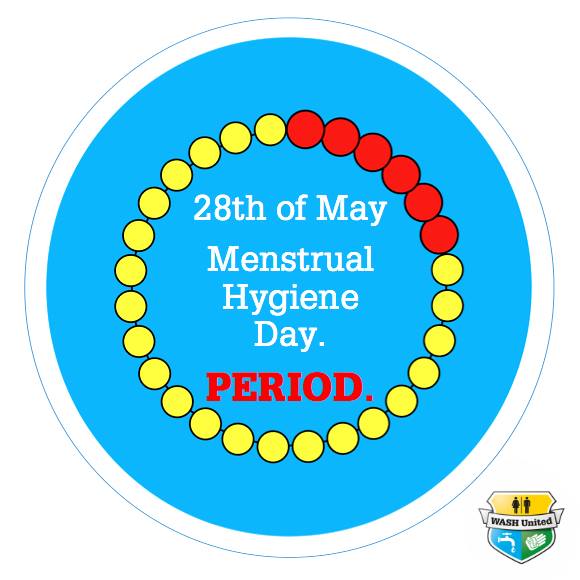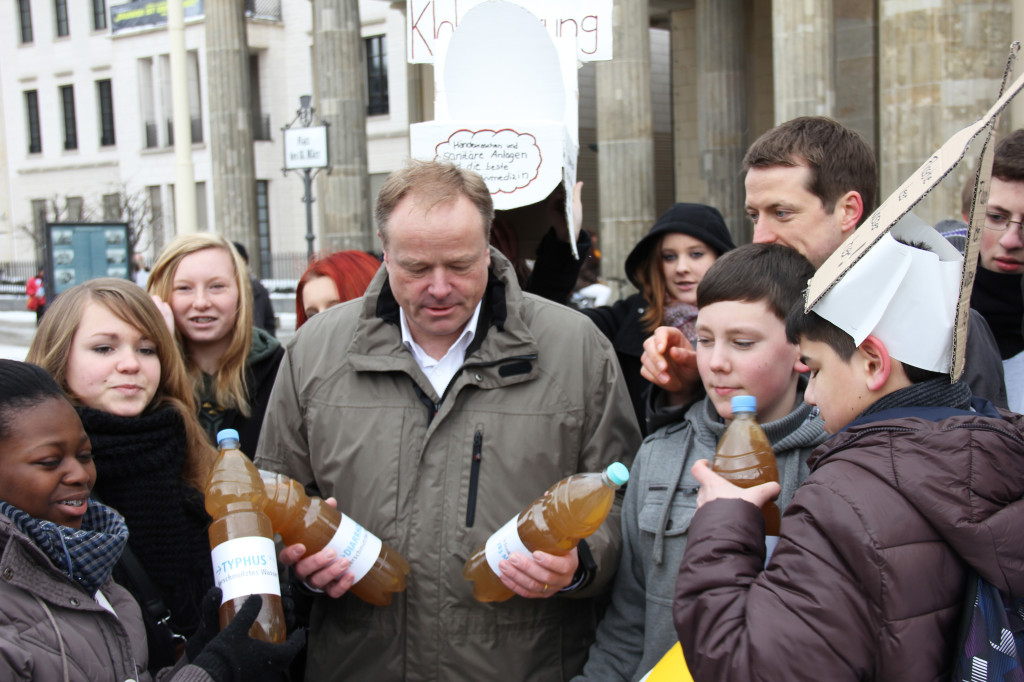WASH United, the international social impact organization that “combines the power of sports superstars, interactive games and positive communication to excite people about sanitation and practicing good hygiene” just wrapped up its 28-day campaign dedicated to shedding more light on menstruation and Menstrual Hygiene Mangement (MHM):

May #MENSTRAVAGANZA Day 28: BIG NEWS! Today wraps up our 28-day campaign dedicated to shedding more light on menstruation & MHM. THANKS FOR ALL YOUR SUPPORT! WASH United, together with amazing global partners, announces that it will make May 28th a globally-recognised Menstrual Hygiene Day. Will you join us in supporting #MHDay?
(src: WASH United FB page)
Yes, of course! MHM is such an important and often still neglected hygiene issue that we urgently need to keep the conversations going – beyond this 28-day campaign. Online and offline.
Please also be reminded that the Sustainable Sanitation Alliance (SuSanA) dedicated a category on its forum to this matter where professional conversations on everything around MHM are already taking place. A few scientists and activists exchanging ideas online certainly won’t be enough, which is why this idea of celebrating May 28th as an international Menstravangaza Day is a smart move.
What I really like about WASH United (the link opens their very active Facebook group) and why their work matters to me: our target group (the people) usually doesn’t pay attention to scientists, but they do hear what superstars say. Remember Angelina Jolie’s preventive double mastectomy? Right. Now, if we can achieve a similar open conversation on MHM the way we are now already talking about (the lack of decent) toilets or mastectomy, then we may have achieved more than what could probably be done via the usual top-down approaches in dev aid.
Let’s put the “men” in Menstravaganza!
P.S.: Did you know there’s an online museum on Menstruation? It’s called “Museum of Menstruation & Women’s Health“. Oh, and the Menstrupedia is also very informative!



